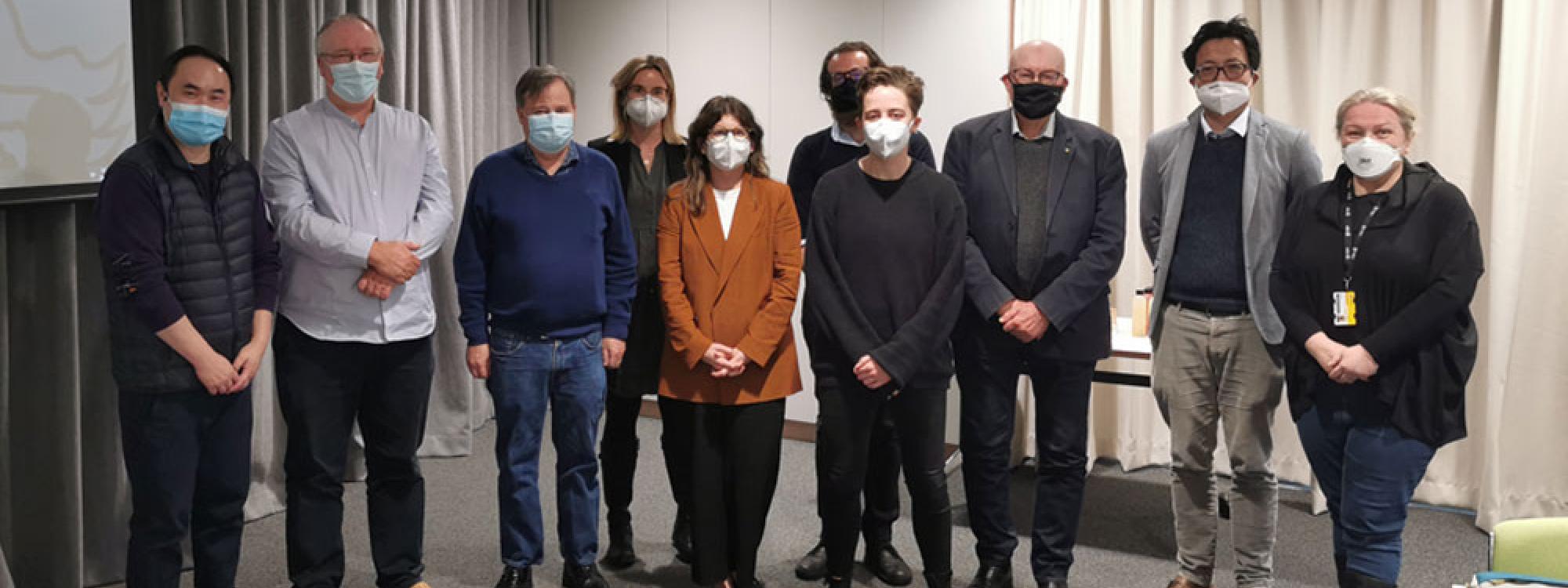
Celebrating the latest Rules as Code event!
After the successful Rules as Code event held at UNSW Law and Justice in late July, Hub Stream Lead Lisa Burton Crawford shares her insights into the approaches to rules as code globally and provides a summary of the key event outcomes and attendees.
The Technologies of Legislation stream examines the ways in which technological tools could be used to assist the drafting and interpretation of legislation. This draws upon Associate Professor Lisa Burton Crawford’s broader work on the volume and complexity of legislation and the challenges this poses. It forms part of a broader collaborative project between the UNSW Allens Hub and Gilbert + Tobin Centre of Public Law, investigating the ways in which various forms of legal technologies may affect core public law norms and values like the rule of law (see, for example, Associate Professor Janina Boughey’s work on automated government).
Governments across the world now have teams or departments experimenting with rules as code, and advising on whether and how this approach could be adopted in the future. It has the potential to ameliorate some of the key challenges posed by contemporary legislation and government decision-making. Many conceptions of rules as code envisage an interdisciplinary process by which code and natural language versions of legislation are co-created.
Requiring law makers to express their proposals in the logic of code can help to ensure that it is indeed illogical, and weed out internal inconsistencies or unnecessary complexities. Bringing the process of making this code ‘in house’ avoids many of the accountability and transparency concerns that arise under the current system, whereby any attempts to represent legislation in code is typically done by private actors, and may be protected by commercial doctrines of confidentiality. It can produce an ‘official’ code version of the legislation, which can be used by government or others to build more accurate automated systems to read and reason about the law.
But there is reason to be cautious about the ways in which a rules as code approach would influence the design of legislation, by incentivising the enactment of more determinate statutes which confer minimal discretion, and its implications for statutory interpretation and judicial review.
On July 29, the Technologies and Legislation stream hosted a workshop at UNSW Law and Justice which brought together some of the people working at the forefront of the rules as code movement to share their insights on the possibilities and limitations of rules as code, and discuss the key questions that it raises for public law.
They were particularly delighted to welcome Matthew Waddington, Senior Legislative Drafter and Deputy Head of the Jersey Drafting Office, who is widely regarded as a leading expert on the rules as code and an advocate of a more ‘minimal’ approach to the technology which assuages many of the concerns raised by legal scholars about the ways in which it will alter legislative design, and the Austlii team of Associate Professor Philip Chung (UNSW), Professor Andrew Mowbray (UTS), and Professor Graham Greenleaf (UNSW), the developers of the pioneering Datalex platform.
The event also enjoyed attendance (in person, and online) by Marina Yastreboff, President of the Australian Society for Computers + Law, and a group of scholars from across Australia working at the intersection of public law, statutory interpretation and technology: Associate Professor Janina Boughey (UNSW), Claire Daniel (UNSW), Associate Professor Patrick Emerton (Deakin University), Martin Roland Hill (UNSW), Associate Professor Anna Huggins (QUT), and Dr Lizhen Qu (Monash University).
This event provided a fantastic opportunity to explore and debate the proper applications of this new technology and its implications for core public law norms and values, which will feed into future scholarly publications by Lisa, Janina and others within UNSW.
The team would like to thank the UNSW Allens Hub for their generous support of this event.
Congratulations to Lisa Burton Crawford and team following their successful Rules as Code event last month!
You can learn more about the Technologies and Legislation research stream and all other Streams on our website and keep up to date with the latest UNSW Allens Hub news by subscribing to our quarterly newsletter!